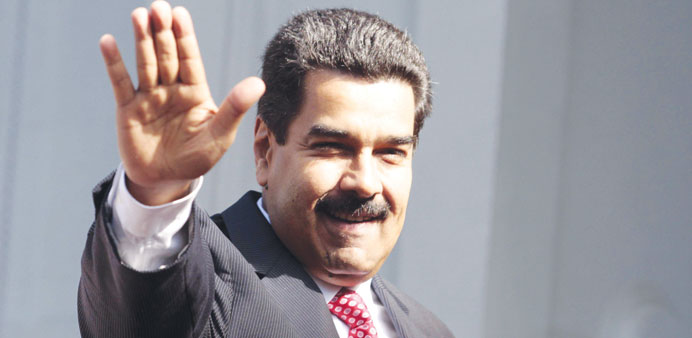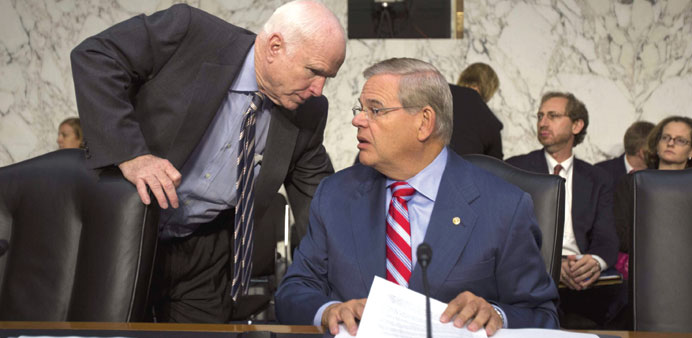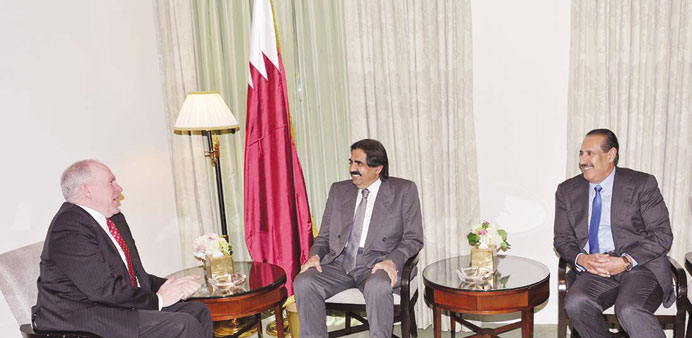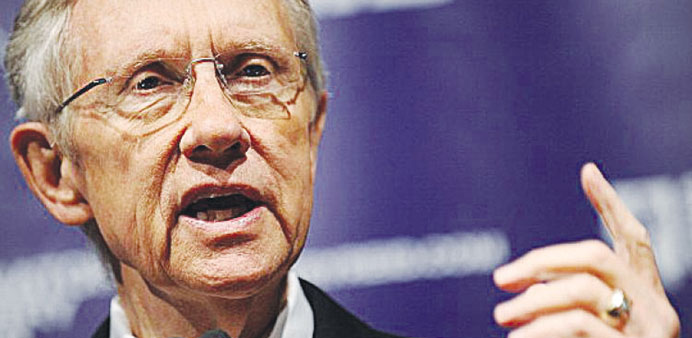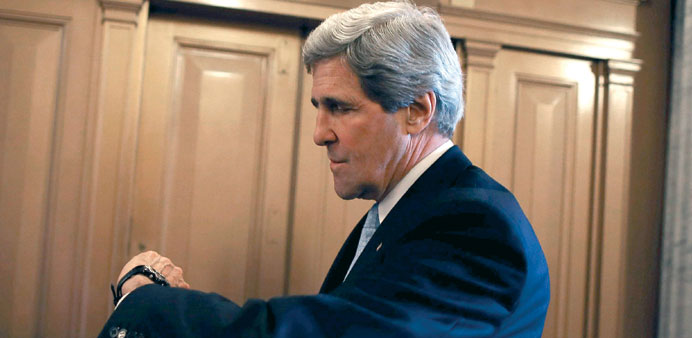Reuters/Washington
Prospects for passage of a US immigration bill with strong bipartisan support brightened on Wednesday when a group of Republican and Democratic negotiators reached a tentative deal on ways to shore up US border security, senators said.
After days of intensive negotiations, a small group of senators had hit upon a compromise that was being floated more broadly in order to gauge support, Republican Senator Bob Corker of Tennessee told reporters.
“I think we’ve overcome the issues that have separated the group in negotiations. I think we’re together now,” Corker said.
It was unclear how the new package might be received by senators who are considered to be undecided and Corker did not want to reveal details of the potential compromise.
A positive response could mean that the Senate next week would approve a sweeping immigration bill by a huge margin, giving it greater chances of success in the House of Representatives.
This bill, the biggest change in US immigration policy since 1986, would put 11mn undocumented residents on a pathway to citizenship, strengthen border security and update the US visa system.
Corker indicated that the tentative deal, which still could fall apart, contains additional money, on top of the more than $6bn already in the bill, for border security operations.
Some senators have talked about adding funds for additional border patrol agents and high-tech surveillance, such as unmanned, aerial drones.
A Republican demand that the Obama administration achieve a 90% success rate in stopping illegal border crossings as a condition for the pathway to citizenship was “not a sticking point anymore”, Corker said. He would not elaborate.
Democrats have pressed hard to prevent such a link.
Republican Senator Jeff Flake of Arizona, who also has been involved in the negotiations, told reporters that he was “hopeful” about the progress made.
Some Democratic senators already were buoyed by Tuesday’s Congressional Budget Office (CBO) report, which concluded that the Senate immigration bill would reduce federal budget deficits by nearly $900bn over 20 years and boost the US economy.
The economic projection is “a big game-changer”, New Jersey Democratic Senator Robert Menendez, a member of the bi-partisan “Gang of Eight” that wrote the bill, told Reuters.
Menendez said the CBO report undermined Republican arguments that the measure would cost the governmenttns of dollars over the long term, mainly in federal benefit payouts to illegal immigrants who are put on a path to citizenship.
Meanwhile, Corker said the CBO’s projection that the bill would reduce illegal border crossing by only 25% “added some momentum to our discussions about doing something very substantial on border security.”
Brian Fallon, a spokesman for Democratic Senator Charles Schumer, a member of the “Gang of Eight”, said the CBO report “assumes that some immigrants who enter the country legally will overstay their visas” under new programmes for temporary workers.
“The bill creates a system to track people who overstay their visas and prevents employers from hiring them, so the number is likely to be much lower than CBO projects,” he said.
The bill faces an uncertain fate in the Republican-led House, where Speaker John Boehner declared on Tuesday that he would only bring immigration measures to the full chamber that enjoy the support of most of his fellow Republicans.
Many House Republicans have vowed to oppose a bill like the Senate’s, voicing objections to the pathway to citizenship, which they argue would reward lawbreakers.
Yesterday, Congressional sources said that a flood of new federal agents and high-tech surveillance devices would be dispatched to the southwestern US border with Mexico under the deal.
The proposal, which could be formally offered as an amendment to the sprawling immigration bill as early as today, would double the overall number of US border patrol agents, according to senior Senate Democratic aides.
That would mean assigning 21,000 new officers to the southwestern border in an attempt to shut down future illegal crossings by foreigners.
The bipartisan bill also calls for building an additional 50 miles (80km) of fencing to complete a 700-mile (1,130km) border barrier, Senate aides said.
At a price tag of around $40bn to $50bn, the amendment, if passed, would represent a potentially massive investment of federal resources in securing the border.
While the legislation would authorise these security programmes, it would be up to Congress in the future to actually appropriate the money for them.
The deal represents a significant win for Republicans who have been clamoring for tougher border security measures. But Democrats could also claim a victory in fending off Republican attempts to delay legalising 11mn undocumented residents until new border security measures were in place.
However, one of the aides said that the newly legalised residents would not get “green cards” allowing permanent resident status until the border security measures were in place. Gaining permanent resident status would take 10 years under the bill, giving the federal government a decade to install the added border manpower and equipment.
During debate of the bill by the Senate Judiciary Committee last month, some lawmakers were sceptical that such a huge investment would be a smart use of federal dollars and they questioned whether 700 miles of new fencing was even practical.
But supporters of the legislation are hoping to capture the votes of more undecided Republican senators with this deal, improving chances of a major rewrite of immigration law in the more conservative House of Representatives, which is controlled by Republicans.
The Senate, controlled by Democrats, 54-46, is expected to vote on passage of the measure by the end of next week, just before Congress begins its Fourth of July holiday recess.
Bill backers have long voiced confidence that they will have the 60 votes needed to clear Republican procedural roadblocks.
Menendez voiced confidence that all 54 members of the Senate Democratic caucus will support the bill, along with a number of Republicans. Backers have long hoped they could get 70 or more votes for passage in the Senate.
Besides the additional agents and fencing, the measure also calls for employing large amounts of unmanned aerial drones, radars and other surveillance devices to catch or deter illegal crossings.
The plan brought a harsh reaction from at least one civil liberties and human right group.
Christian Ramirez, director of the Southern Border Communities Coalition, said the huge build-up in agents, surveillance hardware and fencing “is expensive and extreme”.
In a telephone interview with Reuters, Ramirez expressed fears that adding so many more armed officers would compound problems already being experienced involving fatal shootings of bystanders on either side of the border.
“The current force on the US-Mexico border is already excessive. What makes matters worse is that there are no checks and balances” on border patrol activities, Ramirez said.
Border patrol officials were not immediately available for comment.

